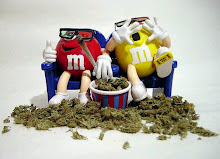On August 11, 2006, a petition was filed with the United States Trademark Trial and Appeal Board of the U.S. Patent and Trademark Office wherein six Native-Americans seek to invalidate the Washington Redskins trademark held by Pro-Football, Inc. The petition claims that the term “redskin” is overtly derogatory and injurious. This follows a similar filing from 1992; a final decision is still pending.
This latest salvo in the fight to eliminate Native-American caricatures as sports Mascots has stoked the fires of debate. On one side you’ve got the Native-American community that claims such mascots and nicknames perpetuate negative stereotypes and are blatantly hostile. On the other side you’ve got dozens of college and professional sports teams who assert the right to coin whichever name they choose. Fans of these teams cite tradition and identity as the driving force to maintain these mascots and nicknames.
Schools such as Arkansas State, University of North Dakota, University of Louisiana at Monroe, University of Illinois, and Florida State continue to take heat for their use of Indian imagery for their respective sports programs. In August 2005, the NCAA banned the use of Native-American mascots during post-season tournaments. Some schools, even in the face of sanctions that would prevent participation in any official post-season championship tournament, have chosen to fight to retain their mascots. Arkansas State and the University of North Dakota remain staunchly defiant while other schools, St. Johns, ULM, Northeastern Oklahoma State University, and others have either changed or are mulling mascot changes. The NCAA Continues to be adamant about the ban. A few high profile programs have won appeals to retain their nicknames; Florida State, Utah, and Central Michigan. The University of Illinois Fighting Illini has appealed multiple times but to no avail. Illinois may eventually have to surrender its beloved Chief Illiniwek.
On April 13, 2001, the United States Commission on Civil Rights issued a position statement that called for the removal of all Native-American mascots from team sports. “The stereotyping of any racial, ethnic, religious or other groups when promoted by our public educational institutions, teach all students that stereotyping of minority groups is acceptable, a dangerous lesson in a diverse society. Schools have a responsibility to educate their students; they should not use their influence to perpetuate misrepresentations of any culture or people…The fight to eliminate Indian nicknames and images in sports is only one front of the larger battle to eliminate obstacles that confront American Indians. The elimination of Native American nicknames and images as sports mascots will benefit not only Native Americans, but all Americans.”
At the heart of the debate is the legal framework upon which claims of discriminatory or hostile representations of Native-Americans are constructed. The NCAA has the legal authority to ban schools from post-season competition but not the authority to compel name change. Only the individual states that preside over their respective state-run university systems can dictate such changes. The fight to force private institutions and independently owned sports franchises to change their monikers has a legally deleterious effect. If the government through legislative edict or judicial fiat eliminates the use of Native-American imagery for private sports entities based on a tenuous application of Constitutional law the ability of private institutions to remain autonomous is compromised. This is not a bridge we as a sports culture can cross.
When examining this debate think in terms of what’s best legally, not philosophically or even morally. No one would feel comfortable with sports teams called the Niggers, Spicks, Slopes, Whaps, Kykes, Porch Monkies, Jungle Bunnies, Chinks, Slats, Beaners, Wet Backs, Red Necks, Hebes, Sand Niggers, etc. It is a given that many Native-Americans view the portrayal of their culture as an overt attempt to hold down their people, as would any sensible ethnic minority should any of the above epithets be used to name a sports team. But if a team is a wholly private entity then can we really dictate to them how and in what fashion they can name their teams. If you object to a state-run program referring to itself in a racially derogatory way then by all means assert your tax payer rights. If you object to a privately run sports team’s allegedly defamatory nickname then exercise your right as a consumer and don’t buy the ticket, merchandise, sponsor’s products, etc. Organize a boycott, speak out, or shut up. The American system of jurisprudence is not capable of deciding such matters efficiently, nor should they be expected to compel the wholesale reversal of innate stereotypes or prejudices.
On a personal level I find the Washington Redskins mascot to be distasteful and can sympathize with those Native-Americans who cringe at the very mention of Daniel Snyder’s team. But it’s not my place or my desire to force the National Football League to change this particular trademark.
As the Native-American community, the NCAA, individual universities and colleges, and professional sports franchises fight this one out I take solace in the fact my beloved Denver Broncos and Colorado Buffaloes nicknames offend no one… except those nitwits at PETA…don’t even get me started on those dumbasses.
Tuesday, August 15, 2006
Using Native-American imagery as sports mascots
Posted by
Shrubbery
at
9:57 AM
![]()
![]()
Subscribe to:
Comment Feed (RSS)


|